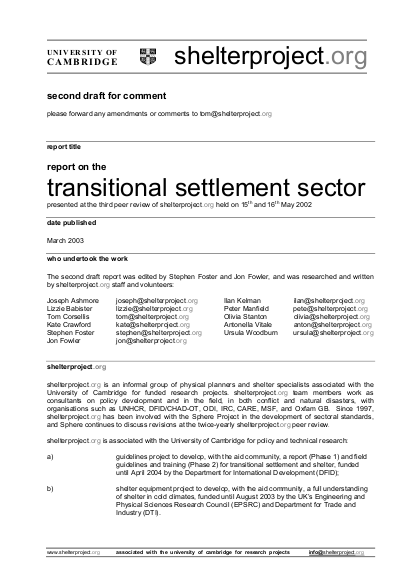
This report shows that the nature of transitional settlement response has been misunderstood throughout the evolution of the aid community as being the physical shelter needs of the individual, such as protection from the elements, and that this has resulted in disproportionately small resources being committed to meeting wider needs, such as security. This, when combined with insufficient legal mechanisms to support transitional settlement as a human right, has undermined the development of the sector.
The report seeks to develop both an understanding of transitional settlement needs and coping strategies resulting from conflict and natural disasters, and an understanding of the appropriateness of response to these needs. It has been peer reviewed by humanitarian donor, coordinator and implementer organisations, and detailed comments were received during and after the peer review.
The report is the first phase in the development, with the same peer review, of field guidelines to support response to the transitional settlement needs of those displaced from their homes by conflict and natural disasters. The guidelines offer assessment, decision-making and implementation tools to maximise the benefits and minimise negative impacts of response for beneficiaries, for their hosts, and for other sectors.